Beautiful, Sustainable, Gastronomical Ie Island
Visit the tiny island whose barley is behind Okinawa’s Orion craft beer
Stand facing northeast on the coast of Motobu, and you can already see the jagged brown peak of Mt. Gusuku, the symbol of Ie Island. Take a short ferry ride across the water, cycle or drive to the foot of the mountain, climb the steps to the top, and you can see the small island’s abundance of farmlands within its 22-kilometer circumference.
Ie Island is home to some 4,500 residents cultivating everything from peanuts and sugar cane to premium barley. In recent years, the island’s traditional agriculture industry has been finding new ways to be sustainable by recycling barley lees to replenish the soil and fertilize new crops.
Cultivating ancient Ryukyu agriculture
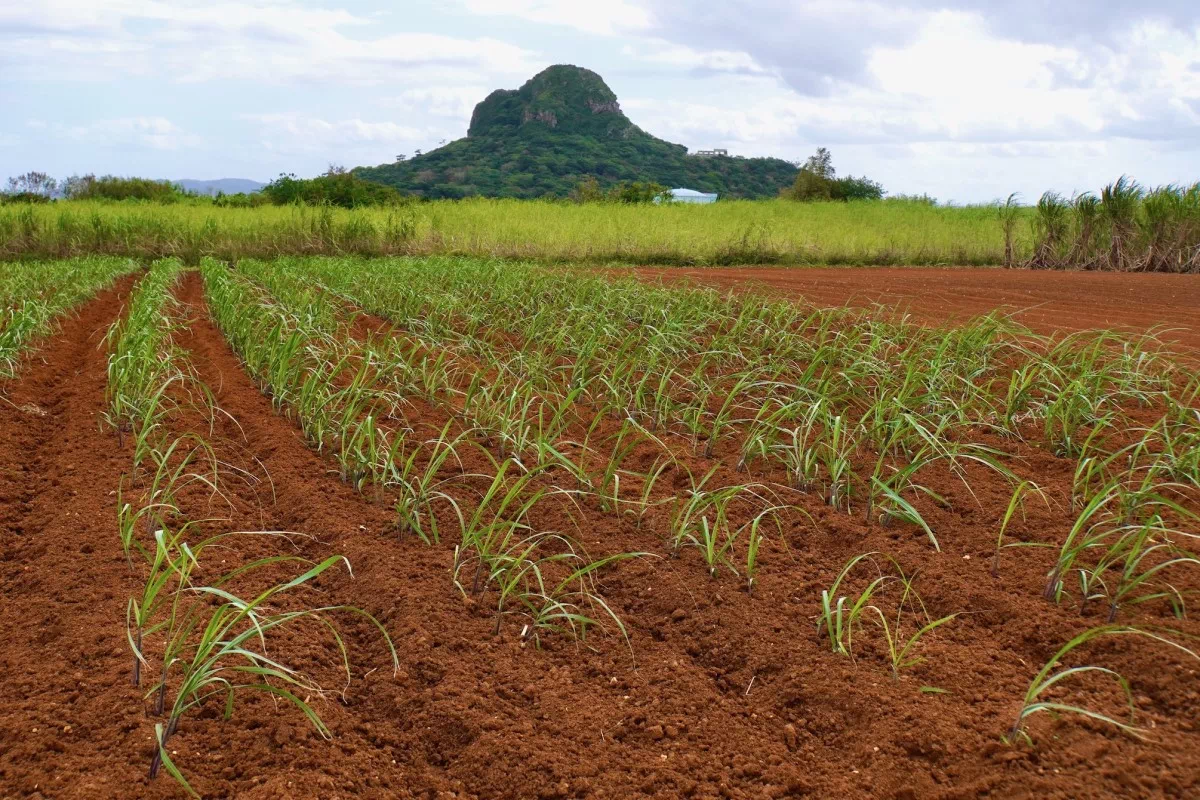
People have been cultivating Ie Island’s rich alkaline soil in year-round mild temperatures since the period of the Ryukyu Kingdom. As no rivers run through the island, there was not enough water to maintain rice paddies, so instead, farmers grew wheat to make steamed bread, tempura, or barley miso.
Today Ie Island is two-thirds covered in farmland, with crops harvested for both commercial and personal use. In addition to the wheat and barley industry, Ie islanders continue to cultivate sugar cane, sweet potatoes, shallots, winter melon, string beans, garlic, a wide variety of flowers, and even the island’s traditional peanuts, especially for producing the local specialty jimami tofu.
Iejima Kazoku, native wheat farming
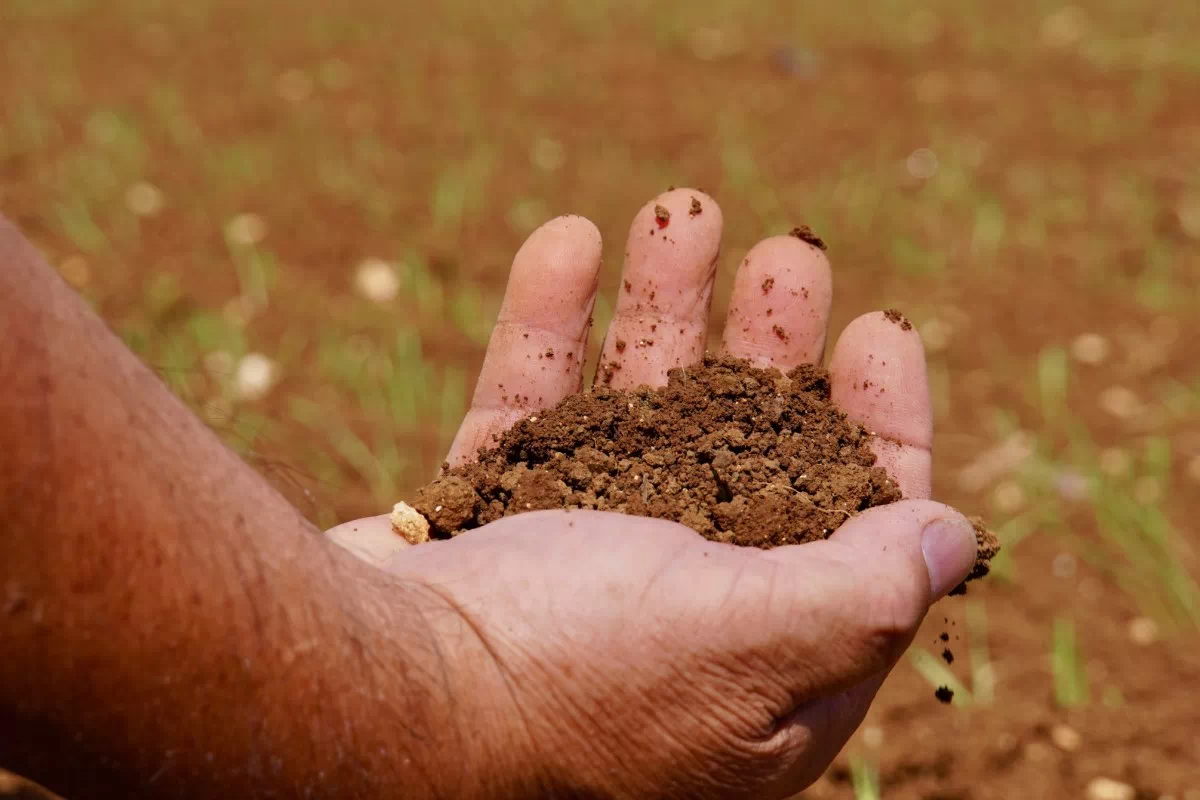
Along with its peanuts, Ie Island once had a thriving wheat industry before the Second World War. Although post-war agricultural production had seriously declined among other economic hardships, native islander Tamashiro Kentoku was determined to revive the island’s traditional Ryukyu wheat cultivation, drawing on local wisdom to recreate a family livelihood.
In 2011, he finally established the Iejima Wheat Growers Association, which cultivates Ejima Jinriki with meticulous attention given to soil, water quality, and all other conditions required to bring out the best of this variety. Ejima Jinriki is one of the oldest surviving endemic species of wheat, a rare and valuable variety whose seeds were hidden and preserved in air-raid shelters during the Second World War. Today, Ejima Jinriki is highly regarded by chefs and pastry chefs throughout Japan for its unparalleled aroma and rich flavor.
Iejima Kazoku uses no pesticides or chemical fertilizers, relying on traditionally organic methods such as wheat-stomping and fungus-spraying. The farm also pulverizes the grains with gentle air currents to preserve more of their nutritional value, instead of grinding, which damages them.
Sustainably crafting Okinawa’s famous Orion Beer
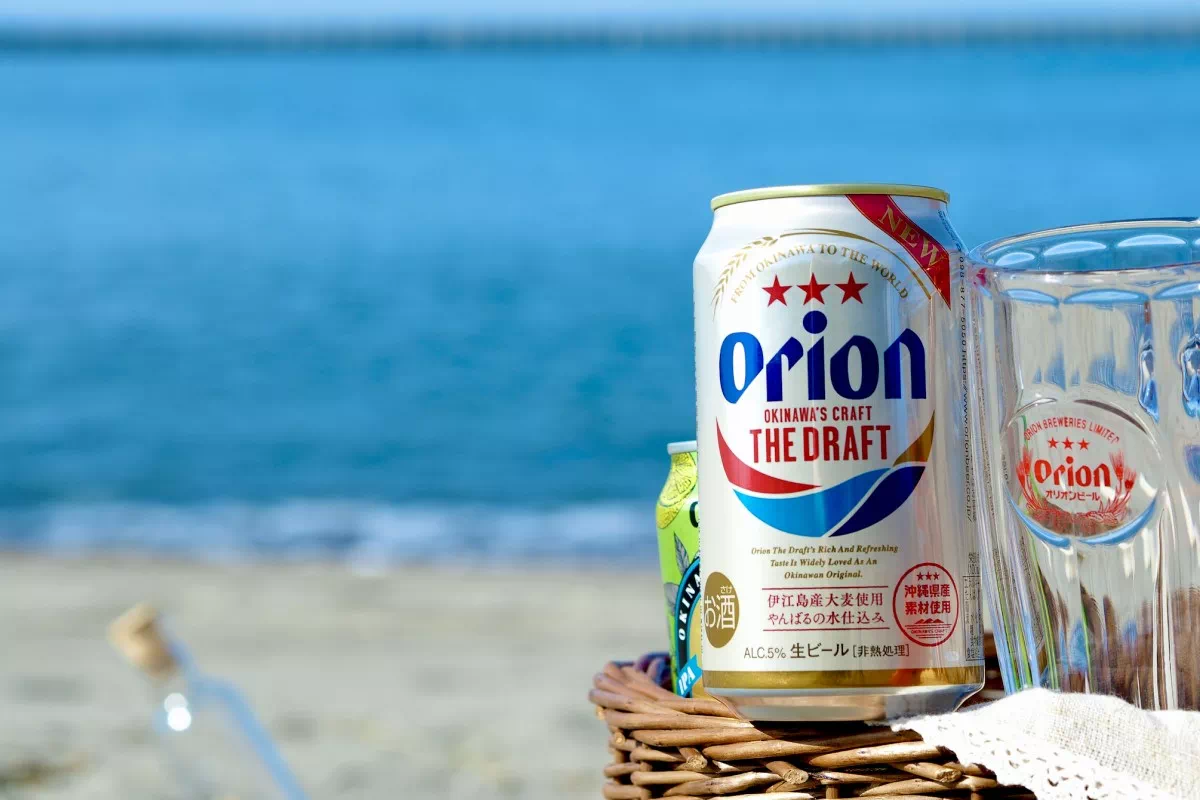
Iejima Kazoku also has a long-standing friendly relationship with Orion, Okinawa’s famous local Japanese beer named after the southern constellation. Since 2020, Orion’s “The Draft” premium craft beer is made with barley grown in the protein-rich soil of Ie Island and pure water from the mountains of Yanbaru. Barley grown on Ie Island is rare, so Orion found a ratio of ingredients that maximizes its qualities while bringing out the beer’s true flavor, in order to create a beer that is uniquely Okinawan.
Furthermore, since 2021, the same Orion beer lees has skillfully been transformed into compost and successfully fertilized Iejima Kazoku’s budding barley crops. The result is a sustainable circular recycling system, from barley to beer and back into the soil. Orion and Iejima Kazoku are currently working with academic researchers and partners to expand this collaboration, and sustainable barley cultivation in general, on Ie Island and in Okinawa.
Discovering Ie Island
Ie Island is easily accessible by a 30-minute ferry ride from Motobu Port on Okinawa’s main island. Electric bicycles, cars, and scooters are all available for rent right next to the ferry terminal at Ie Port, or you can bring your own vehicle onto the ferry. The island’s compact size makes it convenient and pleasant to visit at any time of year. You can appreciate its natural beauty, not only through its bountiful agricultural landscape, but through its pristine beaches, coral reef diving spots, foaming spring water, and famous lily blossoms.
Learn More
- Iejimakazoku *only in Japanese
- ORION BREWERIES

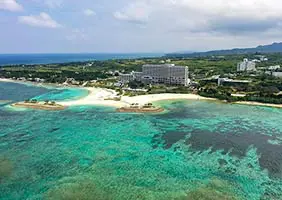
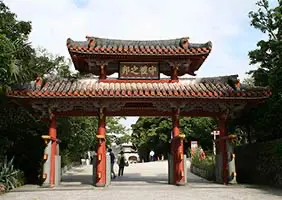
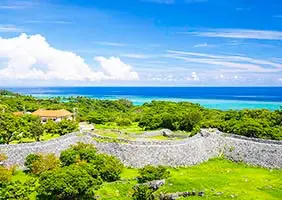

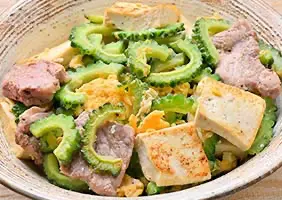
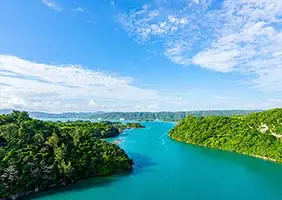

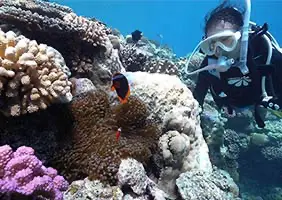
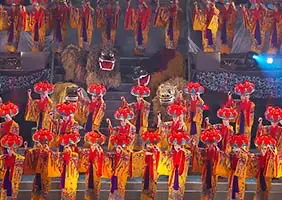
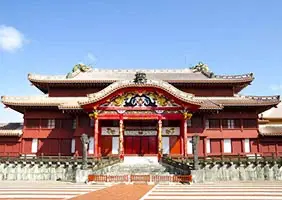
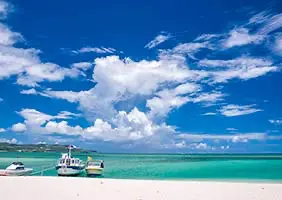
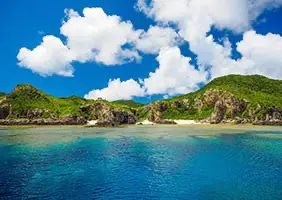
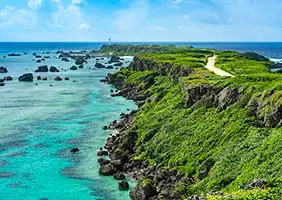
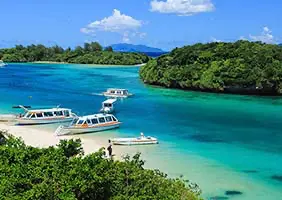

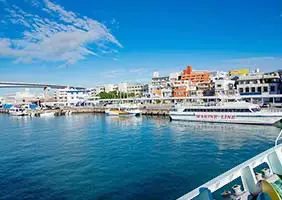

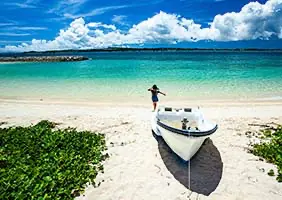

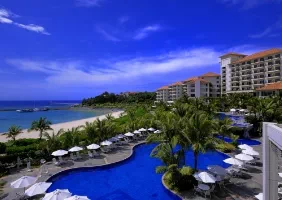
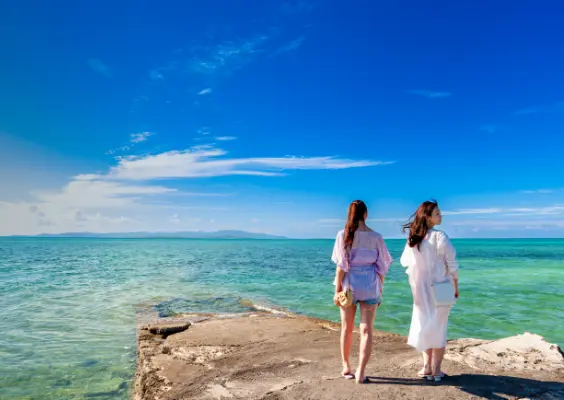
 Facebook
Facebook Twitter
Twitter Copy URL
Copy URL


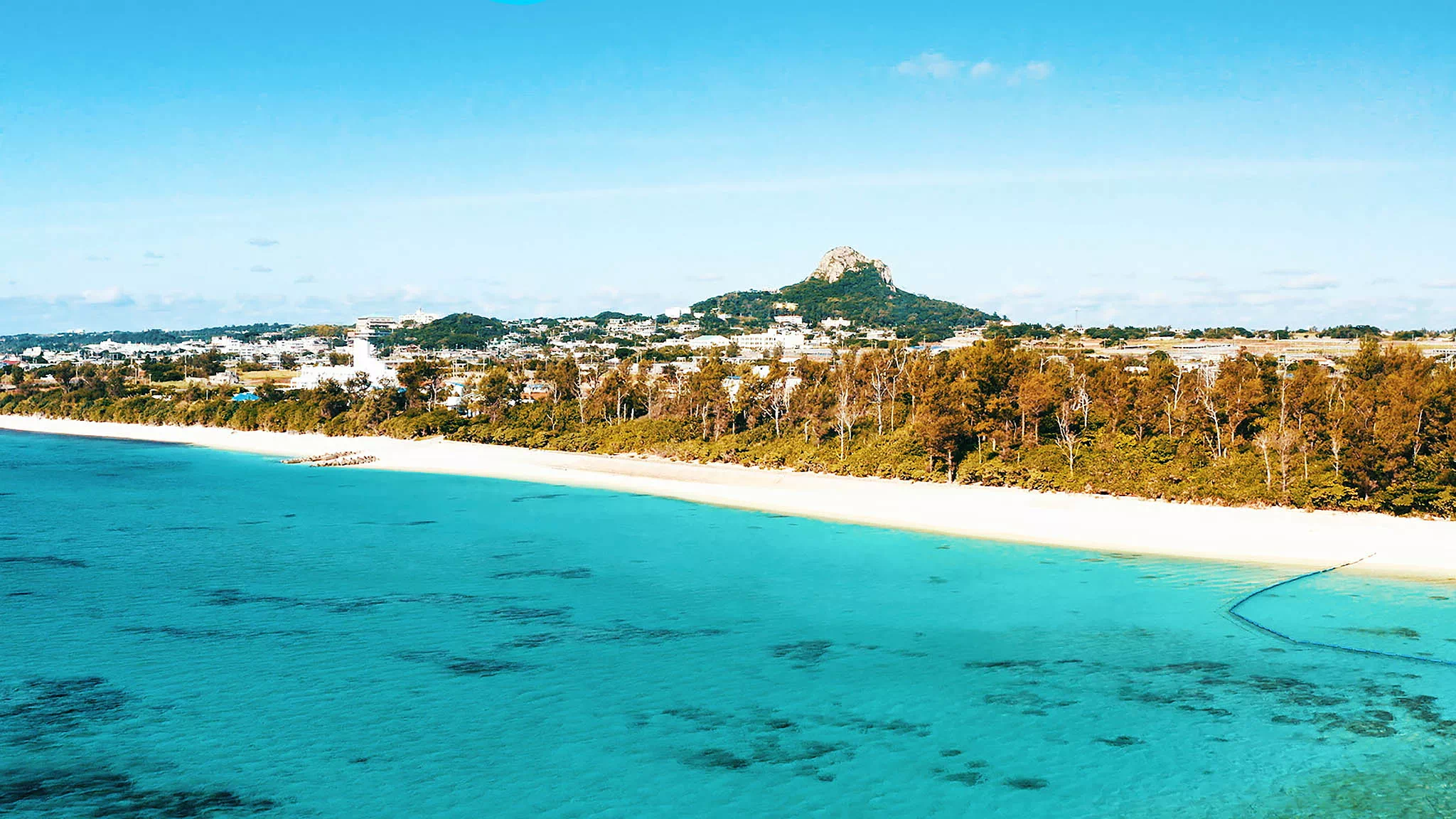
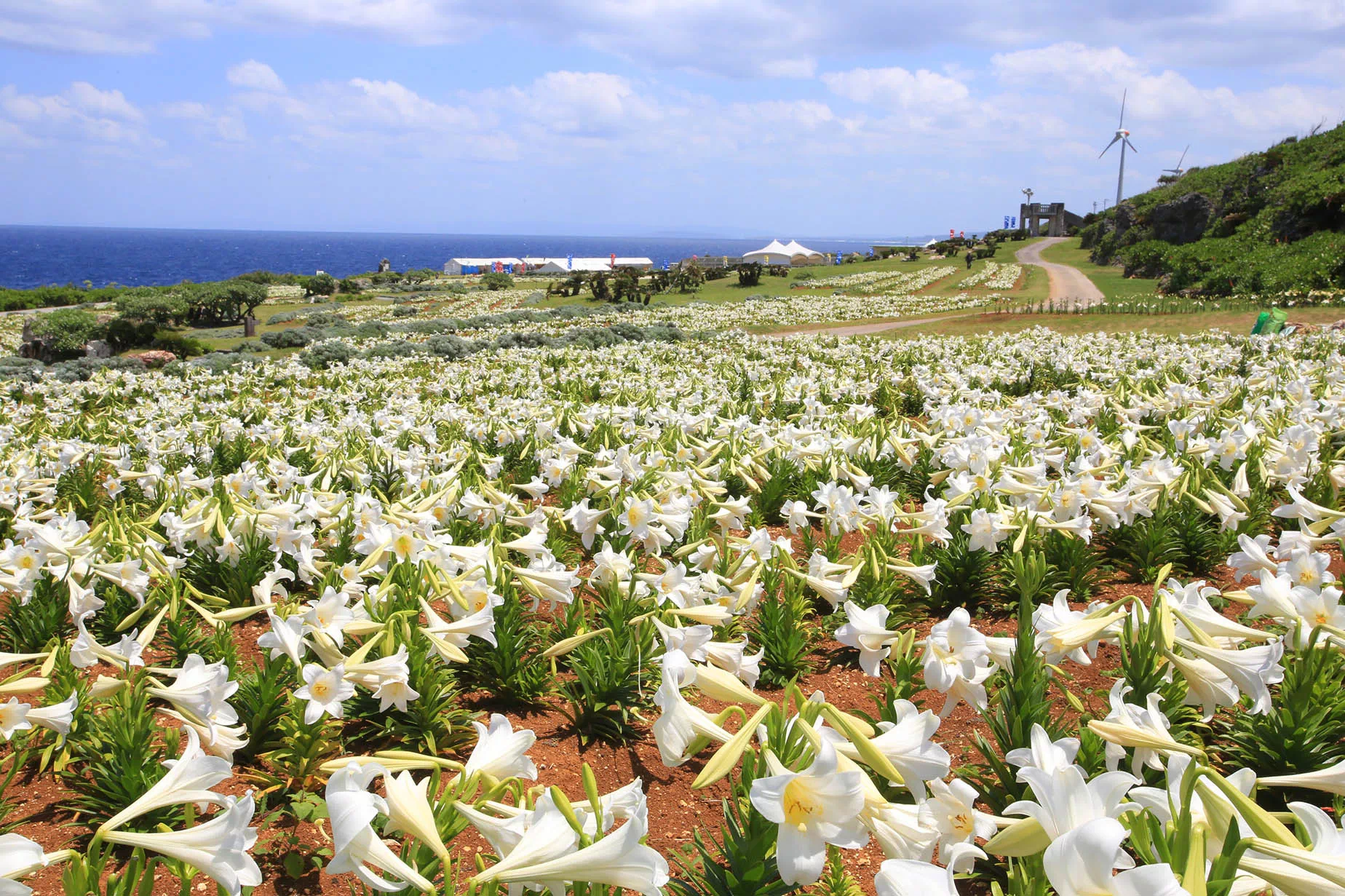
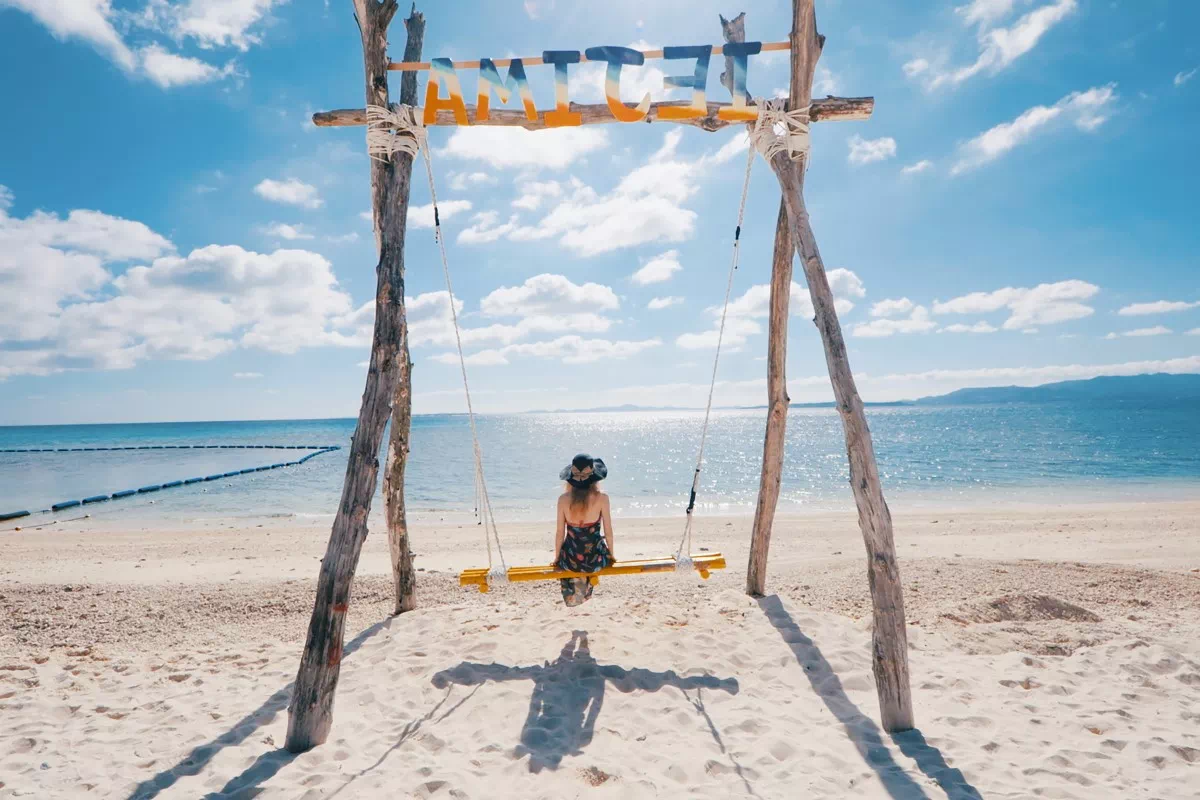
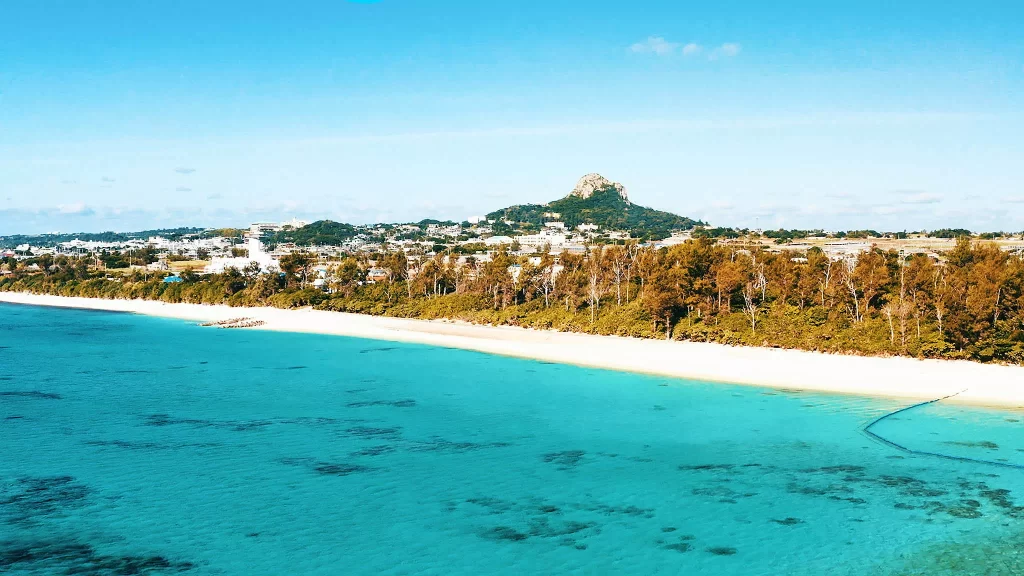
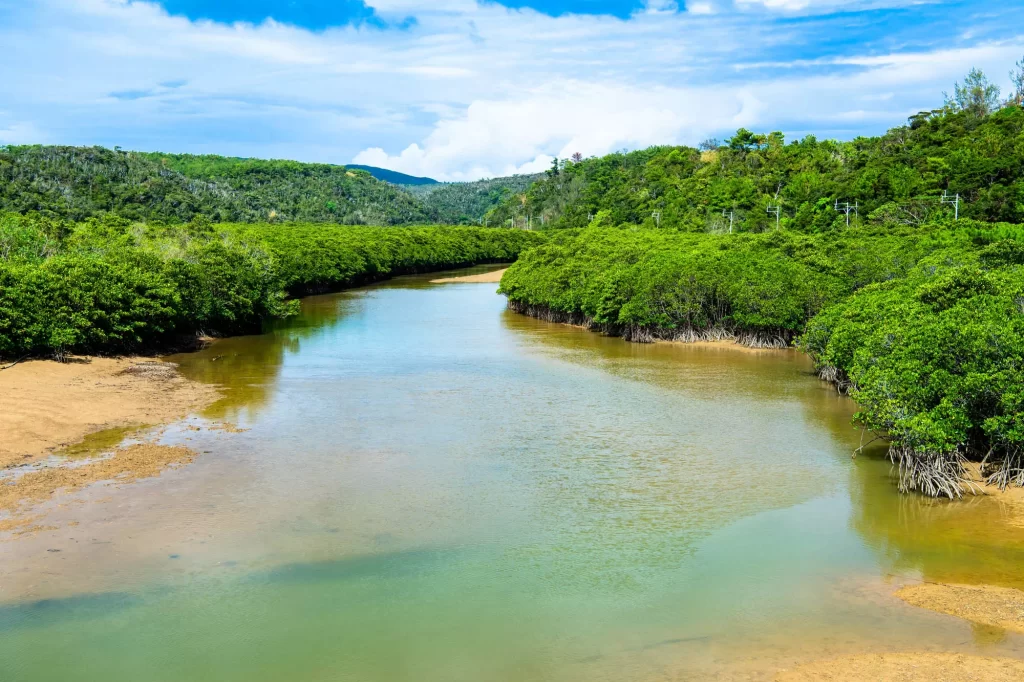
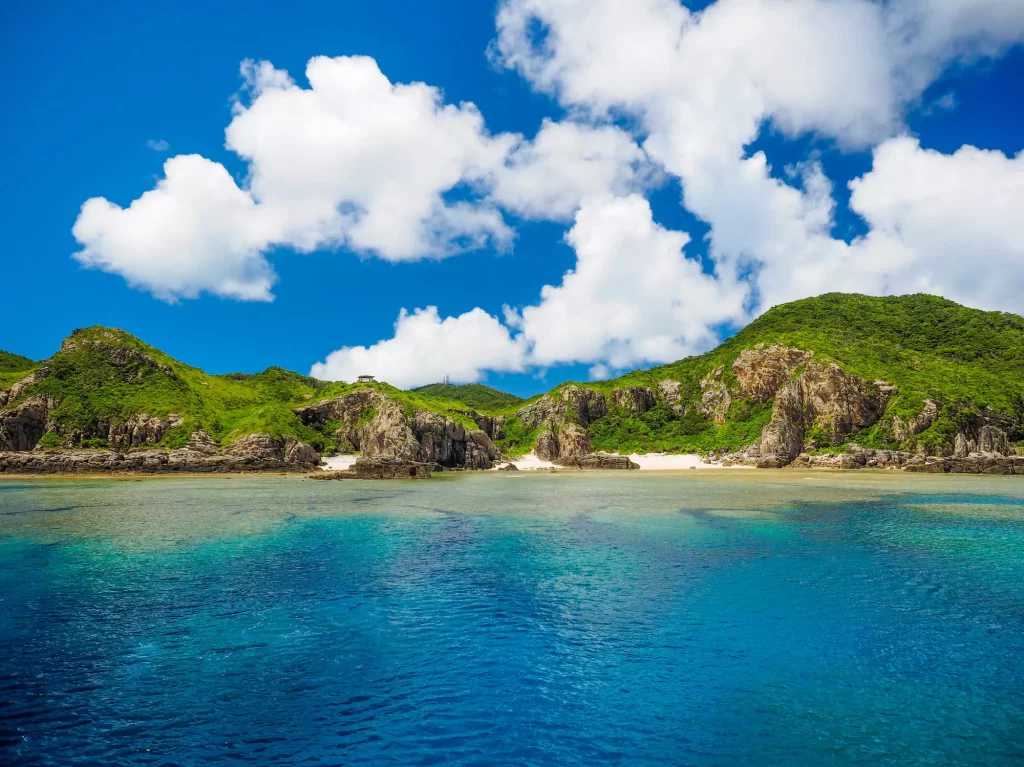
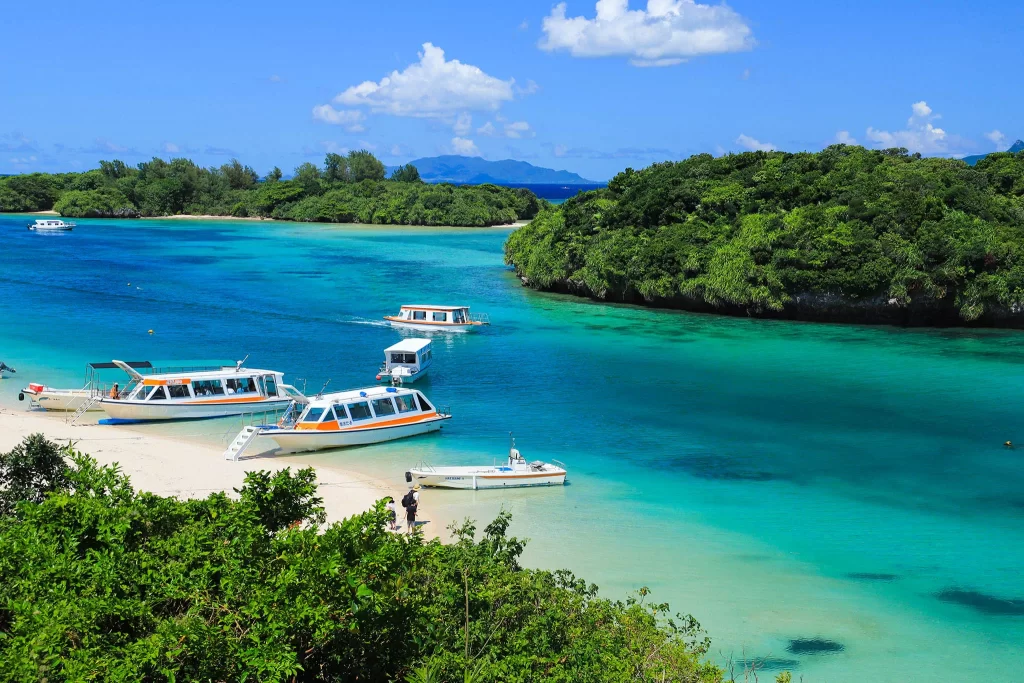
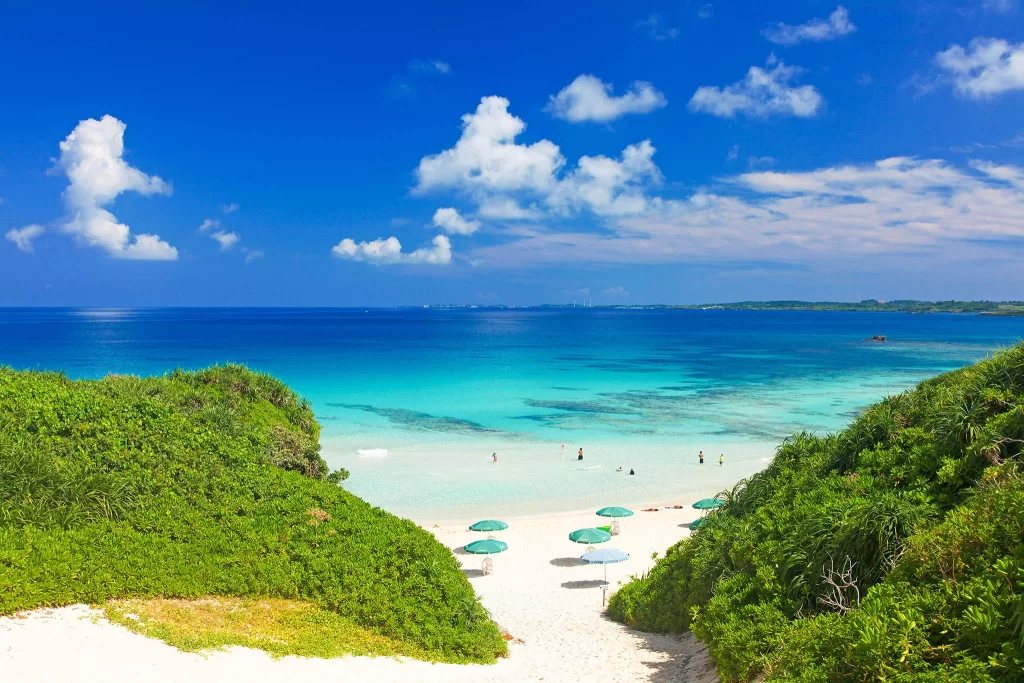
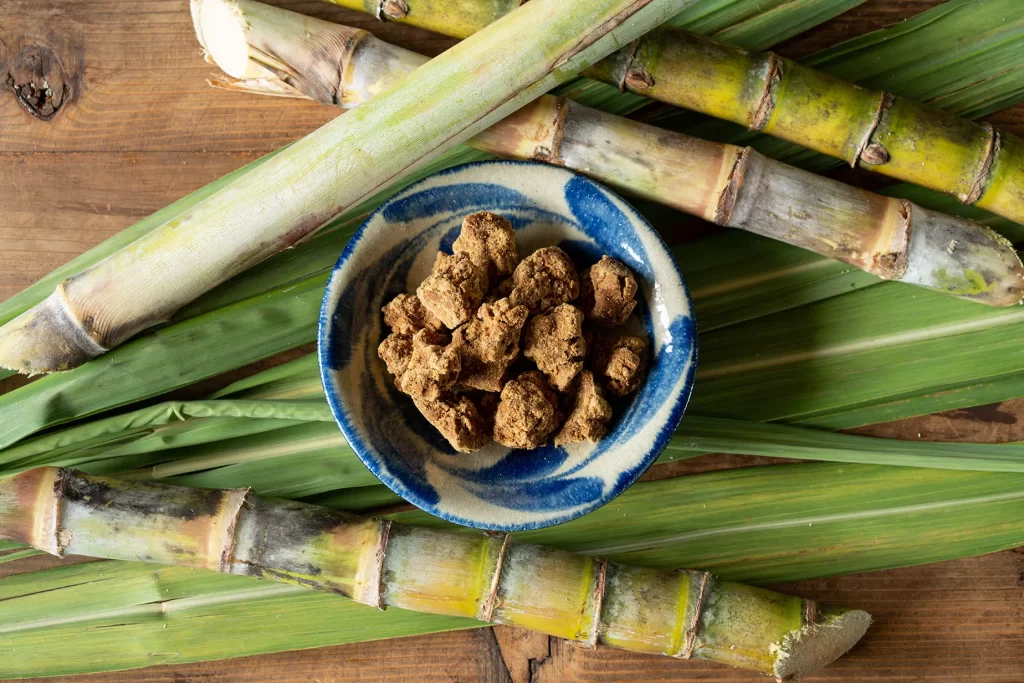
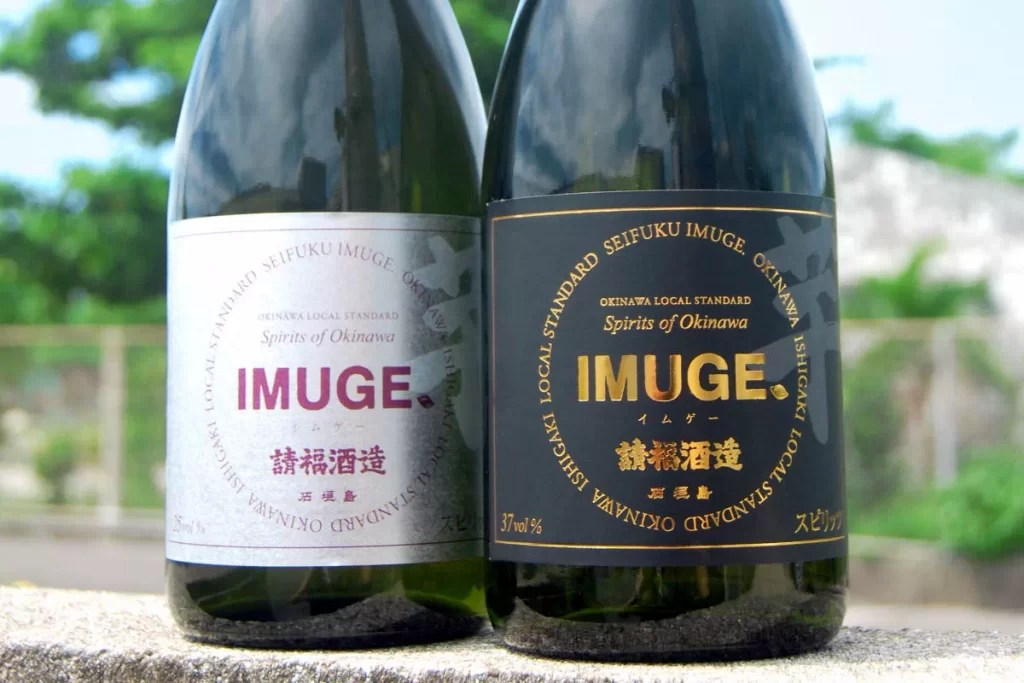

Text by Cherise Fong
Cherise Fong is a devoted bicycle traveler and eco-writer currently based in Tokyo.